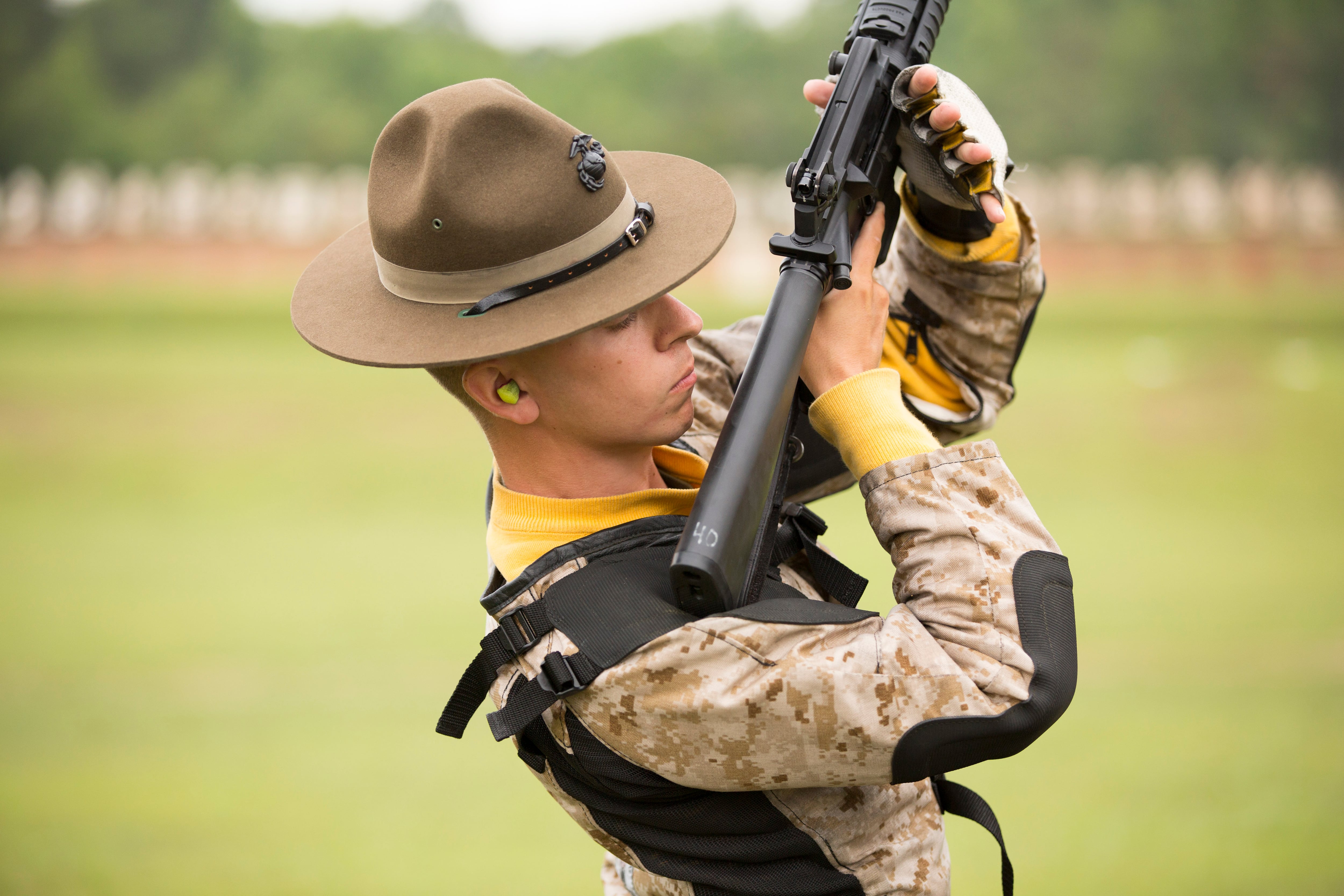As a member of the Marine Corps Shooting Team, Ranton repeatedly hit targets dead center from distances of 200, 300 and 600 yards away at the 54th annual Inter-service Rifle Team Championship on June 30th. Tuesday.
"Shooting is a sanity check for me," Ranton told the Marine Corps Times. "Nobody wants to get beat by the band guy."
The precision shooting competition brought together members from all military branches here to test advanced marksmanship skills. The event was hosted by the Weapons Training Battalion, home to the Marine Corps Shooting Team.
Four other 10-member teams also competed, including the Army Marksmanship Unit, an Army Reserve team, a Marine Corps post and base team, and an All-Guard team with members drawn from the Army and Air National Guards.
![Army team takes inter service rifle team championship [ID=29626907]](/Portals/_default/Skins/PrestoLegacy/CommonCss/images/smartembed.png)
Although the Marines lost to the Army Marksmanship Unit, the event showcased the precision marksmanship of the Corps and validated the mantra "every Marine a rifleman."
The elite members of the MCST come from all areas of the Marine Corps. Unlike soldiers in the Army Marksmanship Unit, who can spend their entire careers in the unit, MCST members have a limited time to hone their skills.
A small permanent-party cadre remains aboard for a maximum of three years, but and the majority of MCST shooters are sent on Temporary Additional Duty from home units for instruction and competition from April to August.
"In a short period of time, these Marines learn something that normally takes years to learn," said Master Sgt. Jorge E. Carrillo, the staff noncommissioned officer in charge of the Marine Corps Shooting Team, said.
Marines are carefully selected and groomed for the MCST.

A Marine competes at the 54th Interservice Rifle Championship. The Marine Corps' shooting teams are working to recruit additional members.
Photo Credit: Daniel Woolfolk/Staff
Each installation has a Post and Station shooting team, whose members first compete annually at one of four divisional competitions at Okinawa, Hawaii, Camp Lejeune and Camp Pendleton; the winners then compete at a Marine Corps-wide championship.
Of the medalists at these competitions, only 10 ten percent are selected by the MCST cadre to join.
"It's not just good shooters we're looking for," MCST instructor Staff Sgt. Timothy Snyder said. "It's the ability to talk to people, to be instructed, and to go out and instruct others."
This is because, since its inception in 1901, its primary mission has been for its members to train other Marines.
Once members return to home units, they bring with them everything they've learned about quality marksmanship from their time with the MCST.
"I was taught by a crusty old CW-4; now I try to pay it forward," said Gunny Sgt. Adam Tack, who represents the shooting team from Marine Corps Recruit Depot Parris Island, South Carolina. "It takes a lot of maturity and self-discipline, but it's more fun than anything."
Yet the number of Marines participating in competitive marksmanship has significantly declined over the last decade, according to MCST members.
Budgetary constraints and high deployment tempos have taken a toll on those able and willing to come out to shoot.
"It used to be a big thing," said Staff Sgt. Mark Windmassinger, staff NCO in charge NCOIC of the MCST's rifle team, said.
"In a wartime environment, units don't want to give people up to come do this. It's a sport, and sport comes far, far after the needs of war."




